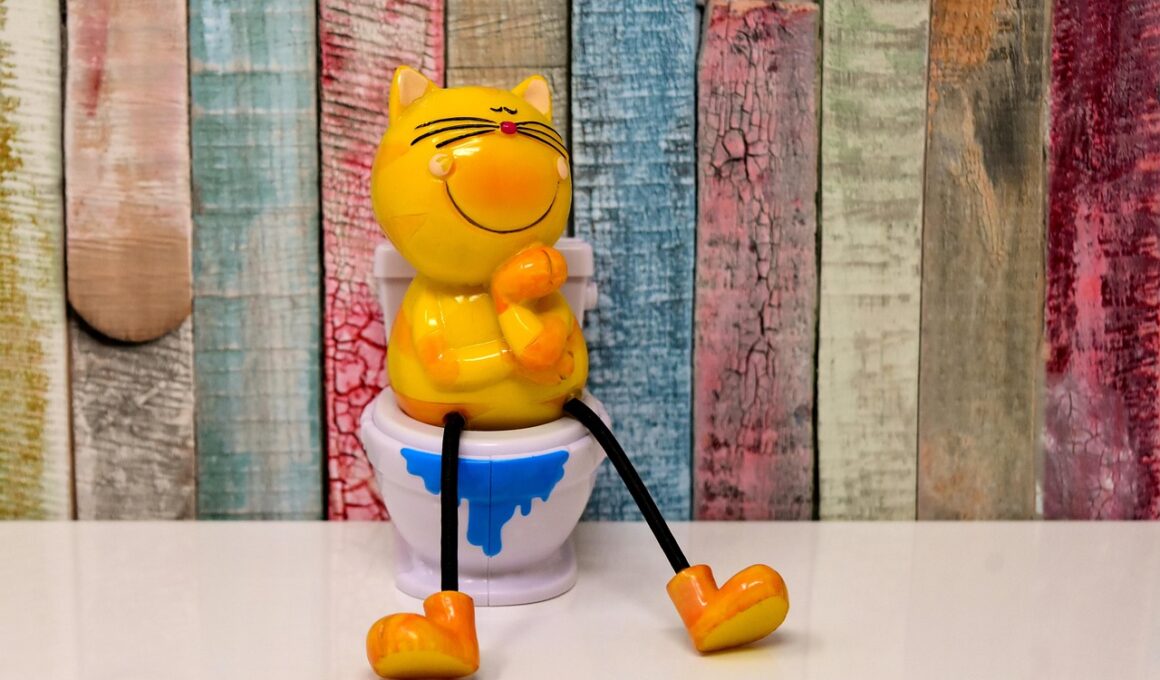The Best Litter Boxes for Kittens That Love to Dig and Scratch
Choosing the right litter box for your kitten is crucial to foster good habits. Kittens are naturally curious and tend to dig and scratch, so selecting a box that meets their instincts is essential. A box that is too tall or narrow might discourage them from using it. A spacious option allows room for movement, accommodating their tendency to dig deeply in the litter. Many kittens appreciate an open box as it feels less confining, allowing them to express their digging habits freely. Moreover, the material also matters; some prefer a softer texture that mimics the natural ground. Additionally, kitten sizes vary greatly, so it’s essential to factor in the dimensions of the litter box in relation to your kitten’s size. You might also consider preferences for covered vs. open types; some kittens will prefer the privacy, while others could feel enclosed and anxious in a covered box. Ultimately, testing several options could help find what your kitten enjoys most. Providing them with a pleasant and satisfactory environment encourages frequent and appropriate litter box usage, which is beneficial for both you and your pet.
The first feature to consider is the shape of the litter box. Kittens often dig at the corners of the box, so a rectangular design can provide ample space. Also, avoid boxes with high sides that complicate entry for smaller kittens. Ideally, look for a box that has a low entrance to make it easy for kittens to hop in and out. It’s important they feel secure while doing their business. Many litter boxes have curved edges or rounded corners to increase accessibility. Besides the shape, the type of litter is also significant; opting for unscented litters that are easier on their sensitive noses is typically advised. Some kittens have a strong preference for certain textures and may sift through until they find what they like. Be mindful of the litter’s absorbency and clumping ability too; this helps in maintaining hygiene and encourages your kitten to dig without leaving unwanted messes. Regularly cleaning the litter box will also contribute to your kitten enjoying their digging exploration. Keeping an attractive environment overall will make the litter box an inviting space for them.
Another important consideration is the size of the litter box. Larger boxes might seem excessive, but they provide the necessary personal space for those enthusiastic diggers. Ensure there is enough room for turning around and scratching without feeling constrained. Kittens grow quickly, so find a box that not only fits their current size but will also accommodate their growth. Some pet owners opt for extra-large boxes to account for this rapid growth phase. It’s also wise to assess the capacity of the litter box in managing multiple uses throughout the day—particularly as your kitten becomes accustomed to using it. By maintaining a clean environment within the litter box, you encourage your kitten to return consistently. Furthermore, providing a litter box that’s large enough can help them explore their digging instincts freely without any stress. Additionally, if you own multiple kittens, it’s recommended to have one box per cat plus an additional box to avoid territorial disputes. Striving for cleanliness and comfort in your kitten’s environment makes a noticeable difference in their behavior and happiness.
Covered vs. Uncovered Boxes
The choice between a covered and uncovered litter box also plays a vital role in kitten care. Covered boxes can provide privacy, which some kittens may prefer, but they can also trap odors and moisture if not maintained correctly. A balance between privacy and sufficient ventilation is key; ensure that covered boxes contain adequate access points for easy entry and exit. Uncovered litter boxes typically allow for better airflow and are easier to clean, which can be an important factor for these curious explorers. If choosing a covered option, look for ones that have a removable top, making cleaning more straightforward. Some kittens may prefer the openness of an uncovered litter box, which can make them feel less confined. As a kitten parent, observing your pet’s interactions with different types of litter boxes can guide you toward the best choice. Testing various designs can help determine their preferences and ensure that they feel relaxed and comfortable while using their litter box. This ultimately contributes to their overall satisfaction and behavior towards litter usage.
Another factor to consider is the ease of cleaning. With kittens, it’s critical to maintain hygiene in their litter boxes to encourage repeat usage. Opt for boxes with smooth surfaces that are easier to clean thoroughly. Your choice of litter can also greatly influence cleaning efficiency; some types of litter form clumps that are easier to scoop out. Regular maintenance routines are essential; ideally, you should scoop out waste on a daily basis. Moreover, complete changes of litter every week keep odors at bay and deters your kittens from searching for alternative elimination spots. Additionally, using liners in the box can simplify cleaning, as they can be changed out promptly without disturbing the litter. This maintenance approach will encourage kittens to view their litter box as a special area just for them, rather than an unpleasant chore. It encourages exploration and satisfaction while digging. A clean box helps cement positive litter habits, making cleanup much easier for the owner as well, ultimately promoting health and happiness in your kitten.
Placement Matters
In addition to the litter box itself, where you place it within your home can also impact your kitten’s willingness to use it. Kittens need a safe and quiet space to feel comfortable and unobserved when using their box. Avoid placing it near their food and water dishes, as this can create an association between elimination and meal times. Consider placing the box in a low-traffic area, away from loud noises or sudden movements that may startle them. Some owners find success by placing the box in an easily accessible yet secluded spot, such as a spare bathroom or laundry room. Ensuring the litter box is placed where they can see but not feel vulnerable helps them to use it more freely. Also, observe your kitten’s behavior; if they seem hesitant to enter the box, consider relocating it to a more suitable spot. Providing an inviting environment that feels safe for your kitten will enhance their overall experience using the litter box and support their natural digging instinct.
Lastly, don’t forget about the aesthetic aspect. While functionality is a priority, a litter box can also complement your home décor and make the space more visually appealing. Various stylish designs are on the market that blend well with interior design themes. Some boxes come designed to resemble furniture, while others have chic colors and patterns that can enhance your living area. The benefit of having a visually pleasing litter box can reduce the stigma that comes with pet care, making it more enjoyable for pet parents to keep their homes tidy. Moreover, remember to integrate your kitten’s personality when selecting designs; they might be influenced by patterns or colors that resonate with them, enhancing their exploration experience. Investing in a thoughtful litter box design shows your commitment to their care and happiness. It not only supports your kitten in their digging adventures but makes it easier for you to maintain cleanliness throughout your home, creating a harmonious environment. Ultimately, a well-chosen litter box facilitates good habits and a positive experience for both kittens and their owners.
In summary, choosing the right litter box for your kitten involves considering several factors such as design, size, and placement. Kittens thrive in environments that cater to their natural instincts, allowing them to dig and scratch freely. Begin by determining the type of litter box that suits your kitten’s personality and habits, whether that means an open or covered type. Consider experimenting with different styles to find one they are most comfortable in. Remember to prioritize cleanliness and give thoughtful attention to the litter type you use and how often you clean it. Pay heed to the placement of their litter box, ensuring it’s in a serene spot away from daily activities. Lastly, don’t underestimate the visual appeal of the litter box; it should fit seamlessly into your home while also catering to your kitten’s needs. Each aspect contributes to creating a positive experience for your kitten during their formative years. Adequate preparation now can build long-term habits and ensure that your home remains a pleasing space for both pets and owners alike. Ensuring care and aesthetics fosters both a happy kitten and a joyful living space.


